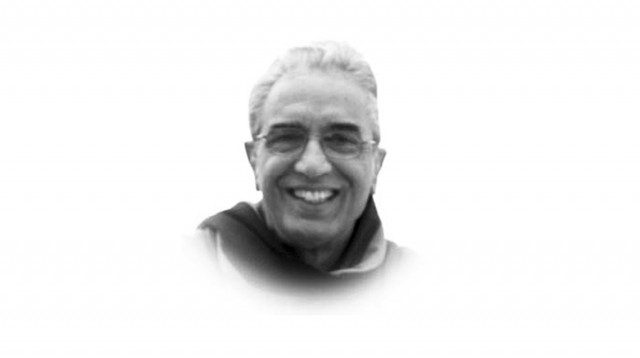No Nobels for the Muslim world
That there was no winner from the Muslim world did not surprise anyone.

No Nobels for the Muslim world
The Prize has been awarded since 1901, to some of the brightest minds of the world for their intellectual achievements in the fields of physics, chemistry, physiology or medicine, literature and, since 1969, Economic Sciences. Over 700 persons from different parts of the world have received the Nobel Awards in the last 110 years. (I am not including the Peace Award because that is not awarded for intellectual achievement.)
Barring four exceptions, none of the winners have been from the Muslim world. The exceptions were: Abdus Salam from Pakistan, in Physics, 1979; Naguib Mahfouz from Egypt, in literature, 1988; Ahmed Hassan Zewail, an Egyptian-American, in Chemistry, 1999; and Orhan Pamuk from Turkey, in literature, 2006. Ironically, except Ahmed Zewail, who is a US citizen, the Muslim world did not give the due recognition or respect to their best and the brightest. In fact, they were treated unfairly. Naguib Mahfooz, was stabbed in the neck by religious extremists. Orhan Pamuk was put on trial by the Turkish government for “insulting Turkishness”, because he talked of Kurdish and Armenian deaths in Turkey. Abdus Salam was virtually disowned by his country because of his faith.
We are frequently reminded of the great contributions the Muslim scholars and scientists made in the past, and how it was through their works the West became acquainted with Aristotle, Greek knowledge and other scientific discoveries and inventions. Simultaneously, we also hear the lament about the Muslim world’s current inability to make any advances in science and other fields of learning despite having nearly one fourth of the global population and immense oil and mineral wealth.
This is true. The period between the 8th and 12th century, was a golden period of learning and advancement in the Muslim world. But what happened then? Why did it lose interest in seeking and promoting knowledge?
Various explanations are offered. Some blame the Mongols, some the colonisation by the West, some the lack of education and some attribute the decline to the Muslims having deviated from the ‘true path’. There are conspiracy theories, too. While the ‘true path’ is difficult to define and conspiracy theories are an excuse for avoiding the truth, the other factors, however, are not the cause but the consequence of the decline that had already set in. So, the question is, why the decline?
One thought provoking explanation comes from Professor Norman F. Cantor (died 2004), a specialist in the medieval history at NYU. He discusses the question, at some length, in his classic book, The Civilization of the Middle Ages. According to him, Islam, in the early centuries, maintained a separation between the religious authorities on the one hand and philosophers and scientists, or speculative thinkers, on the other. The former derived their knowledge of theology and ethics from the Holy Quran and the traditions of the Holy Prophet (Pbuh), without having the compulsion to conform to the scientific beliefs. On the other side, “the speculative thinkers did not have to worry immediately about the compatibility of reason and revelation or whether they would lose their jobs for preaching heresy. Therefore, they could afford to be especially bold”.
While this was the golden age of the Muslim world, the West was going through the Dark Ages. It did not have this separation between the clergy and temporal scholars; learning and research was carried out under the umbrella of the church. And it was difficult to question the established beliefs.
However, towards the latter part of the 12th century, things began to change. The religious leaders in the Muslim world felt that the traditional religion was in danger of subversion by the speculative thinkers. They, with the cooperation of the state, proceeded to silence the expression of rational thought. And, in the words of Cantor, “after 1200, scientific thought in the Islamic world was dead”. If the Muslim world hopes to revive scientific thought and produce great scholars and scientists — and Nobel laureates — it will have to create a learning environment free of fear and fatwas, where one could think speculatively and question freely.
Published in The Express Tribune, October 7th, 2011.















COMMENTS
Comments are moderated and generally will be posted if they are on-topic and not abusive.
For more information, please see our Comments FAQ